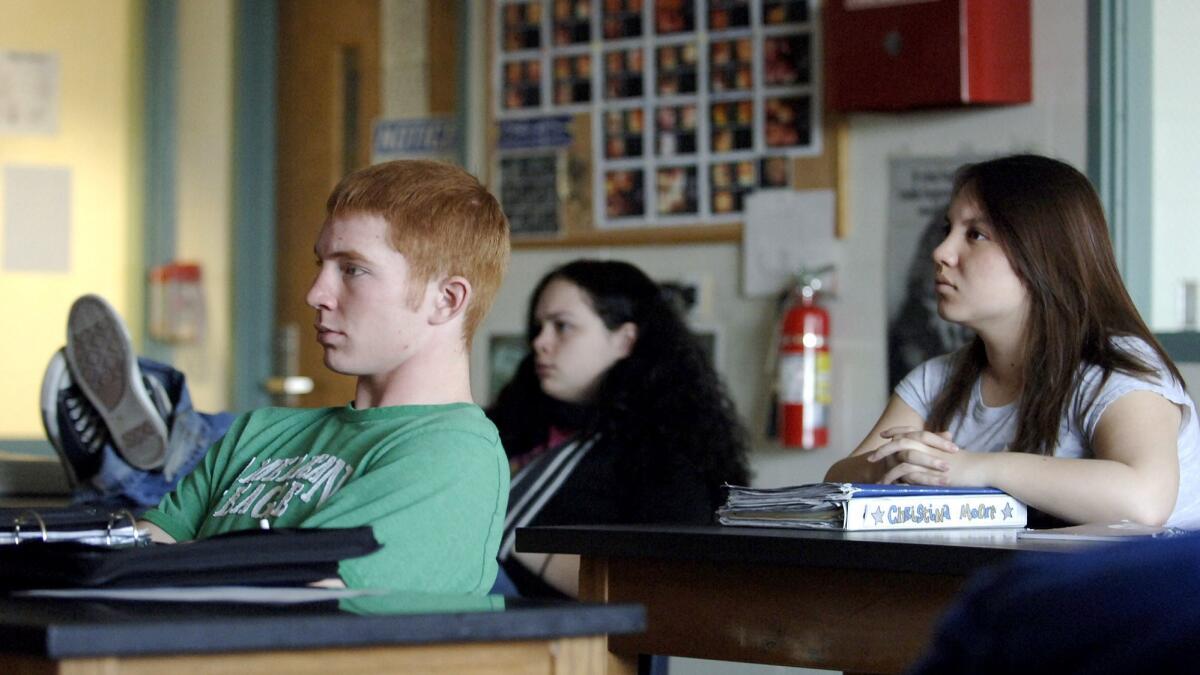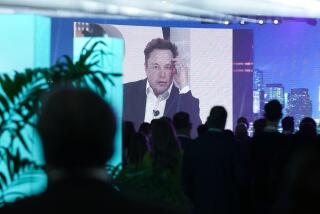Op-Ed: It’s still hard to teach evolution in too many public school classrooms

- Share via
Burwell vs. Hobby Lobby. Masterpiece Cakeshop vs. Colorado Civil Rights Commission. Obergefell vs. Hodges. Supreme Court cases involving the role of religious beliefs in civic life have repeatedly made headlines in recent years. Such conflicts, of course, are not new. Last week marked the 50th anniversary of the Supreme Court’s decision in Epperson vs. Arkansas, which struck down the state’s ban on teaching evolution in public schools.
Tennessee vs. Scopes (the so-called monkey trial) is perhaps more famous. But teacher John T. Scopes lost that 1925 case, and in 1928 Arkansas — following Tennessee’s lead — enacted its own ban on teaching evolution. It was 40 long years before the U.S. Supreme Court finally validated the demand of a teacher — Arkansas’ Susan Epperson — that students get a complete and accurate science education, including evolution.
The Epperson ruling did not, however, end interference with the teaching of evolution. Over the years, there was a series of efforts to require that the teaching of evolution be “balanced” with alternatives dressed up to seem scientific — first biblical creation, then creation science and finally intelligent design. Each, in turn, failed to pass constitutional muster. The legal situation is clear: The government cannot prohibit the teaching of evolution nor can it require teachers to muddy the teaching of evolution by presenting non-scientific alternatives.
About 60% of the surveyed teachers reported downplaying evolution, covering it incompletely or ignoring it altogether.
Goodness knows the science is settled, too. No credible scientist doubts that evolution is the theoretical and practical core of biology, with more evidence emerging from a rich array of research fields with every passing year. Claiming that evolution remains an open question is as scientifically preposterous as suggesting that the jury is still out on whether matter is made of atoms.
And yet teaching evolution is still challenging in many communities in the United States. Opposition arises because many people mistakenly believe that accepting evolution is incompatible with their religious faith. This point of view is widespread: In a rigorous national survey published in 2008, more than 20% of public high school biology teachers reported experiencing pressure to downplay evolution.
Public battles over the teaching of evolution still erupt almost every year at the state level. In Arizona, the outgoing superintendent of public instruction, Diane Douglas, last year advocated that intelligent design be taught alongside evolution in public school science classrooms. She then asked a creationist to help revise the state’s science education standards. These proved to be unpopular moves, though. Douglas didn’t make it past the primary when up for reelection this year. Around the country, state legislatures routinely consider measures aimed at undermining evolution education. Kentucky, Louisiana, Mississippi and Tennessee have anti-evolution laws on the books.
With evolution still a matter of political controversy, it’s understandable that a teacher who wants to cover evolution forthrightly might feel some trepidation, or a teacher who is inclined to skip the topic might feel justified. Indeed, about 60% of the surveyed teachers reported downplaying evolution, covering it incompletely or ignoring it altogether.
So it is not enough to include evolution in state science standards, textbooks and local curricula. To ensure students learn about evolution, we first need teachers who have a confident grasp of evolutionary biology. It is a concern that only about half of the high school biology teachers surveyed held a bachelor’s degree in biology and only around 40% had taken a course specifically in evolution. Many states are incentivizing science teachers to achieve more rigorous qualifications, but it will take time to undo decades — generations even — of evolution avoidance.
Enter the Fray: First takes on the news of the minute from L.A. Times Opinion »
Science teachers also need to know how to handle subjects that are at best misunderstood and at worst deeply distrusted by a segment of their community. When it comes to managing conflict in the classroom, virtually none of them are explicitly prepared. Such preparation is not impossible; successful strategies are being developed, refined and employed. For example, in teaching evolution, providing explicit instruction on the nature of science is extremely effective; it helps students recognize that science and religious faith are different, but not mutually exclusive, ways of understanding the world.
Encouragingly, American attitudes are changing in a way that offers hope for decreased resistance to the teaching of evolution. In 2015, the Pew Research Center reported that while 37% of those older than 65 thought that God created humans in their present form within the last 10,000 years, only 21% of respondents between the ages of 18 and 29 agreed.
Epperson’s efforts in 1968 were heroic: She risked her job, her reputation and potentially her safety to stand up for the teaching of evolution. Many dedicated science teachers are willing to work to improve evolution education, but they need the support of all of us who value the integrity of science education, to create a world in which teaching evolution no longer requires heroics.
Ann Reid is the executive director of the National Center for Science Education.
Follow the Opinion section on Twitter @latimesopinionand Facebook
More to Read
A cure for the common opinion
Get thought-provoking perspectives with our weekly newsletter.
You may occasionally receive promotional content from the Los Angeles Times.






